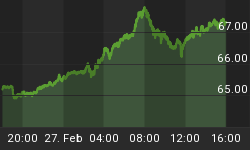Times like these--when a virus is highly threatening but law and order haven’t broken down--can often bring out the good in people. But it also triggers quite a lot of “entrepreneurial”, or rather, opportunistic, sensors. As such, the coronavirus pandemic is destroying some businesses, but creating new opportunities, as well--many of them ethically questionable, and some of them completely unhinged.
But consumers are notoriously vulnerable in these times, and that vulnerability has ticked up a notch with the World Health Organization’s declaration of COVID-19 a “pandemic”. So far, the viral disease has swept into at least 114 countries and killed more than 4,000 people.
The panic--especially in the markets--soared late on Wednesday after Trump imposed travel restrictions to the United States from several European countries. And the rest of the news is too extensive to recount, from the NBA suspending the season after one player tested positive, to revelations that actor Tom Hanks and his wife, Rita Wilson, both have the coronavirus.
The vultures have come out of the woodwork in droves, not the least of them being everyone’s favorite televangelist, Jim Bakker, who has been selling a fake cure for the virus, for which he is now being sued for selling a fake treatment in violation of state (Missouri) and federal law.
But plenty of industries are also legitimately raking it in, with a bit of price-gouging on the side.
U.S. sales of hand sanitizer soared 255% year-on-year and producers don’t have to make it in rainbow colors or pack it in My Little Pony or Spiderman cases in order to attract customers. Any old packaging will do now. The sale of oat milk, which is more shelf-stable than cows milk, has surged 441%.
Sales of medical masks have seen a 319% surge nationally over the last month compared to the same time last year. And manufacturers of all products in demand are struggling to supply.
But here’s one you might not have immediately guessed: Gun stores are reporting a sharp rise in the number of Asian-Americans purchasing firearms, fearing they will be targets in racist backlash because the virus originated in China.
Grocery and food delivery services are also experiencing an increase in their business. Adjusting to the situation, delivery service providers are now offering no-contact drop off options to consumers to minimize the spread of germs.
Corona beer parent company released a statement saying that the sales remain strong, despite “unfounded concerns” about the spread of COVID-19 affecting its business. Still, last week’s survey found that 38% of Americans wouldn't buy Corona "under any circumstances" at the moment presumably because of the potential connection between the beer and its namesake virus.
With many products in high demand sold out in stores, shoppers are racing to online retailers to order items to protect against the coronavirus. This is where the vultures circle in droves, offering wildly overpriced wares of dubious origin.
Last week, Amazon removed hundreds of thousands of overpriced items and suspended thousands of sellers who have engaged in price gouging on its marketplace. Ebay also banned sales of face masks and hand sanitizer amid coronavirus price gouging.
Related: New Study Equates Luxury Cars With Low Self-Esteem
But it’s not just these obvious products--a brand new market is opening up for things you’ve never heard of.
A collection of air purifier companies have begun to sell products that claim to be able to remove the coronavirus from the airstream. Some companies are integrating their existing thermal imaging capabilities, fitted into sunglasses, cars, phones, to scan people around you to determine if they have a fever that could potentially signal coronavirus.
A small Seattle-based company called Immutouch has created a smartband that vibrates if you touch your face.
On an individual scale, people are patenting more protective devices such as “spitting hats” that come fitted with a protective net to block germs from someone spitting or sneezing.
Several innovative capitalists are also now marketing merchandise with the coronavirus-related theme, but online retailers are removing those from the marketplace. One of them is the "I survived coronavirus" bracelet. The idea for the product came from the 2011 “Contagion” movies where the bracelet was given to the patient when treated with the vaccine.
And indeed, watching the movie for many was fun, until it wasn’t.
One Chinese architect patented a concept product, a personal bubble suit, that could protect a person from the coronavirus.
And there is a televangelist Jim Bakker, selling the cure for the virus.
Bakker, televangelist, entrepreneur, and convicted fraudster offered products like "Silver Solution", which claimed to be able to cure the coronavirus illness.
Bakker was promoting a “natural health expert” on his show by the name of Sherrill Sellman, who claimed that the “Silver Solution” had been “tested on other strains of the coronavirus and has been able to eliminate it within 12 hours. Totally eliminate it. Kills it. Deactivates it.”
Baker even claimed that it "has been proven by the government that it has the ability to kill every pathogen it has ever been tested on, including SARS and HIV."
All for $80 a bottle. Now, it’s going for half of the price because Bakker is being sued and they had to relabel it without using the word “cure”.
By Josh Owens for Safehaven.com
More Top Reads From Safehaven.com:
















